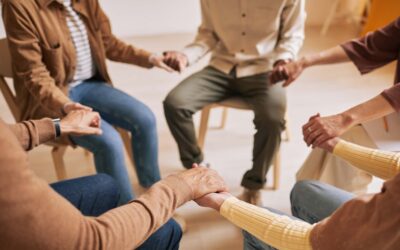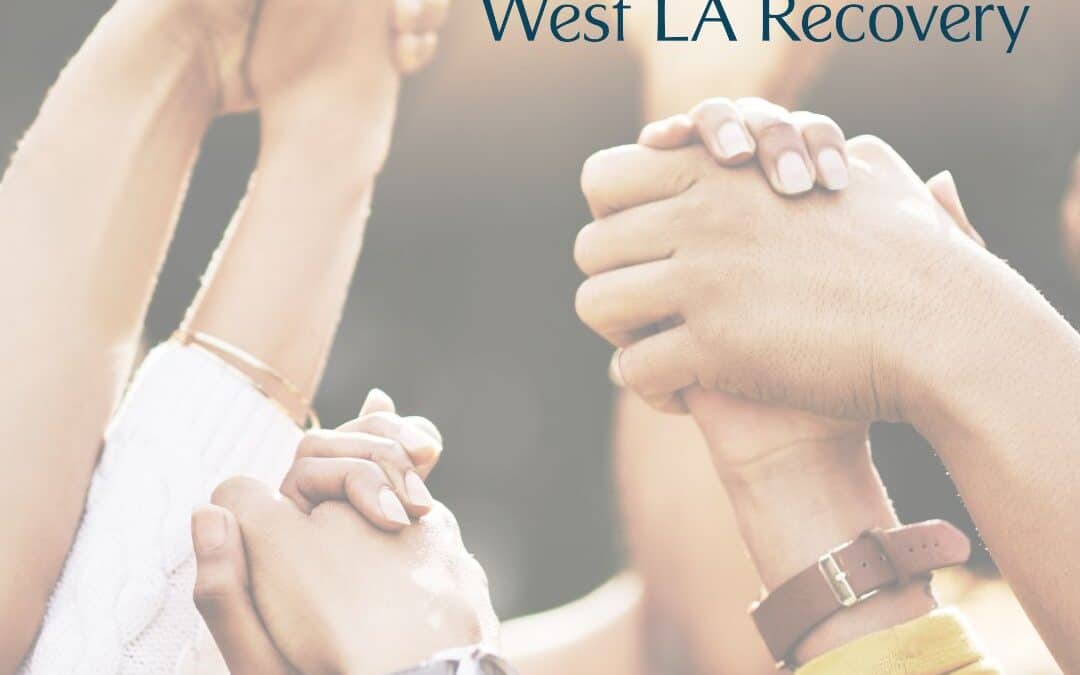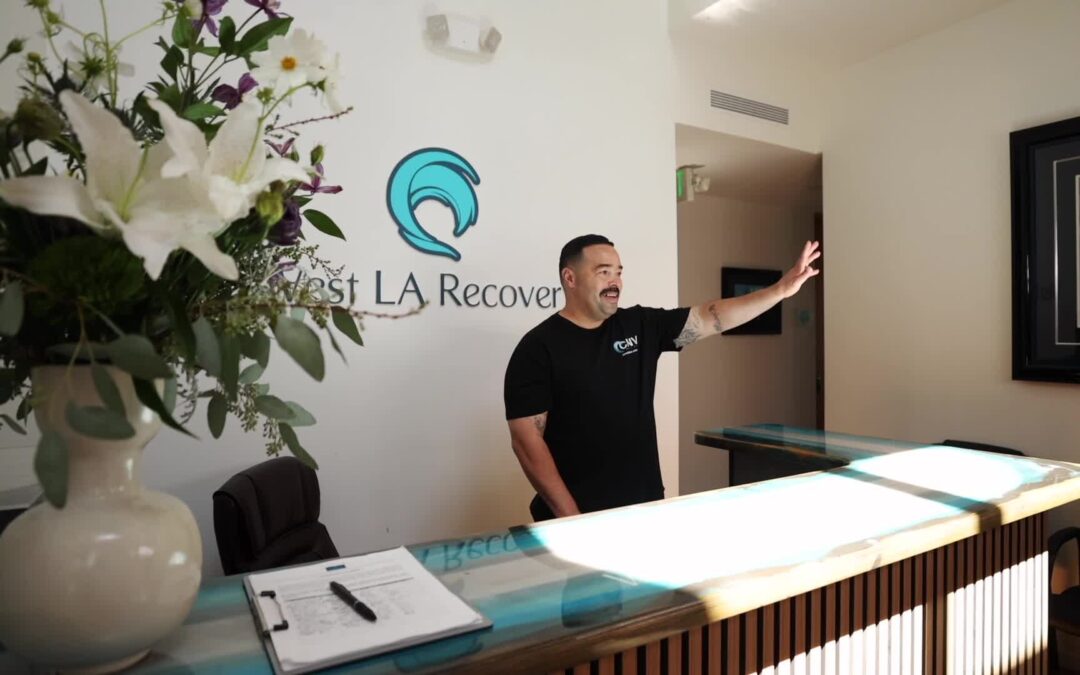The Role of Recovery Communities in Overcoming Isolation
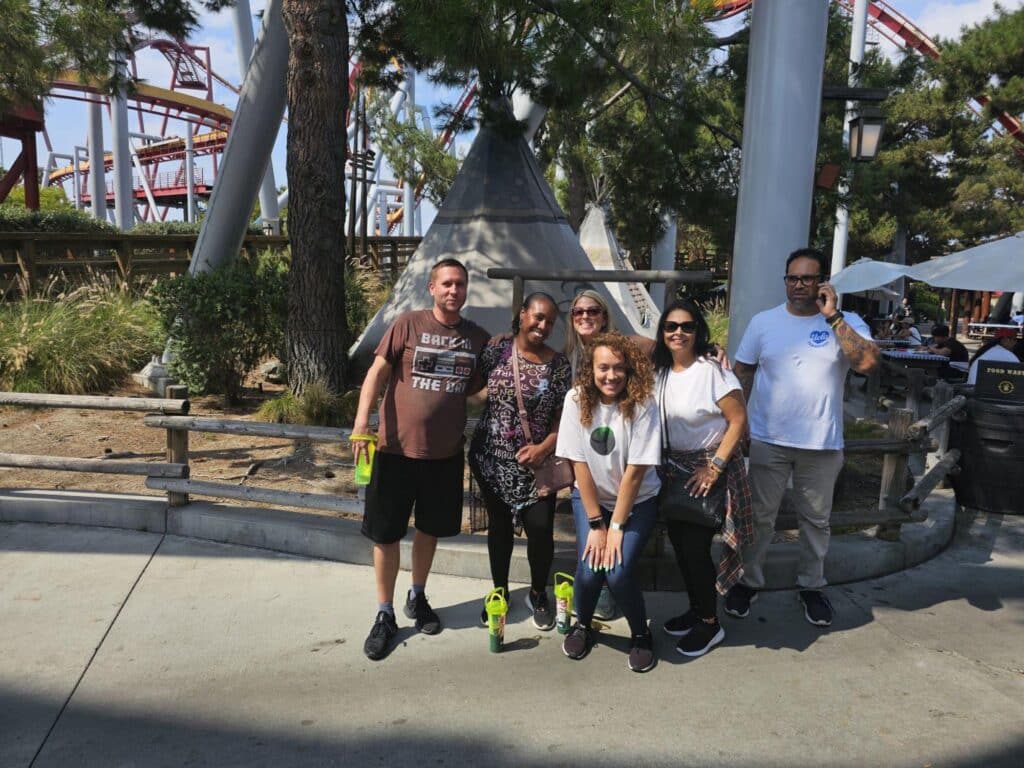
Isolation and addiction create a destructive feedback loop that can trap you in cycles of substance use and despair. When you’re struggling with addiction, the shame and stigma often drive you deeper into solitude, cutting off the very connections that could provide healing and support. This isolation becomes a barrier to recovery, making it harder to access resources, maintain motivation, and develop the coping skills necessary for lasting sobriety.
The power of a recovery community lies in its ability to shatter this cycle of isolation. You discover that you’re not alone in your struggles when you connect with others who understand your journey firsthand. These communities provide a safe space where vulnerability becomes strength and shared experiences create unbreakable bonds.
Connection in sobriety transforms your relationship with yourself and others. The loneliness that once felt overwhelming begins to dissolve as you build meaningful relationships with people who genuinely understand your challenges. You witness others who have walked similar paths and emerged stronger, giving you hope that recovery is possible.
Through consistent engagement with recovery communities, you experience a profound shift from isolation to belonging. The support network you build becomes your foundation for growth, accountability, and sustained wellness. You learn that recovery isn’t a solo journey—it’s a collective effort where everyone’s success contributes to the strength of the whole community.
What Defines a Recovery Community?
A recovery community is a supportive network where individuals who have overcome addiction and are committed to staying sober can connect with one another. These communities provide safe spaces for members to share their struggles, celebrate their victories, and support each other in their recovery journey. It’s important to note that recovery communities go beyond traditional treatment settings, forming genuine connections that promote long-term healing.
The Role of Recovery Community Organizations (RCOs)
Recovery community organizations (RCOs) play a crucial role in these networks by offering structured support through various programs and services. These organizations typically provide:
- Meeting facilitation for group discussions and peer sharing
- Educational workshops on coping strategies and life skills
- Social activities that help rebuild healthy relationship patterns
- Advocacy programs aimed at addressing stigma and promoting policy reform
- Resource coordination to connect members with housing, employment, and healthcare services
The Power of Peer Support
The strength of peer support in sobriety lies in the genuine understanding that comes from lived experience. When you engage with recovery communities, you encounter individuals who truly understand the challenges you face because they have gone through similar experiences.
A Holistic Approach to Recovery
Recovery communities adopt a holistic approach that recognizes addiction impacts every aspect of life. Instead of solely focusing on substance use, these networks also address interconnected areas such as mental health stability, social skill development, and community reintegration. This comprehensive perspective acknowledges that sustainable recovery requires healing the entire person, not just treating addiction symptoms.
The Importance of Community Engagement
Additionally, community engagement is vital in the recovery process. By actively participating in community activities and events, individuals can cultivate a sense of belonging and support which is essential for their recovery journey.
Benefits of Connection Within Recovery Communities
Connection in sobriety transforms the recovery experience from a solitary struggle into a shared journey of growth and healing. When you engage with others who understand your challenges firsthand, you gain access to emotional support that professional treatment alone cannot provide.
Emotional Support Through Peer Connections
Peer support in sobriety, a vital aspect of support systems, creates a unique therapeutic environment where vulnerability becomes strength. You discover that sharing your experiences with others who have walked similar paths reduces shame and self-judgment. These connections validate your feelings while providing practical insights from people who have successfully navigated similar obstacles.
Building Resilience Through Group Involvement
Group involvement builds resilience through collective problem-solving and shared wisdom. You learn coping strategies that have worked for others, expanding your toolkit for managing triggers and stressful situations. The accountability that naturally develops within these relationships helps you stay committed to your recovery goals, even during difficult moments.
Empowerment Through Community Engagement
Community in recovery fosters empowerment by shifting your identity from someone defined by addiction to someone actively contributing to others’ healing. You begin to see yourself as valuable and capable when you offer support to newcomers or share your story during group meetings. This transformation from receiver to giver creates a powerful sense of purpose.
Hope Through Shared Success Stories
Hope emerges through witnessing others’ success stories and celebrating milestones together. You see tangible proof that long-term recovery is possible, which strengthens your belief in your own ability to maintain sobriety and build a fulfilling life.
Finding a Recovery Community Near You: Focus on Los Angeles
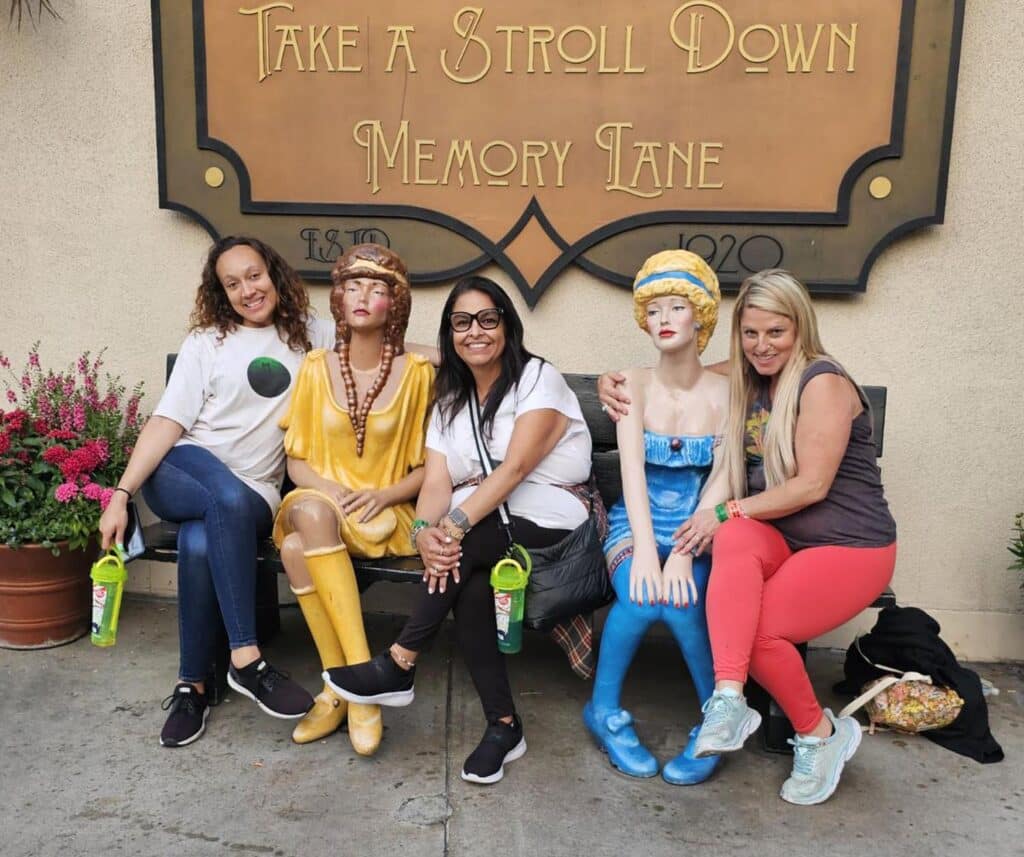
Los Angeles offers an extensive network of recovery communities designed to support individuals at every stage of their journey. When searching for a recovery community near me, you’ll discover numerous pathways to connection within LA’s diverse recovery landscape.
Start your search with these practical steps:
- Contact local Recovery Community Organizations (RCOs) directly through their websites or helplines like those at West LA Recovery
- Visit community centers in West LA, Santa Monica, and surrounding areas that host regular meetings
- Connect with healthcare providers who can provide referrals to established recovery community in LA networks
- Explore online directories that list meetings, programs, and support groups by location and specialty
Types of support available in LA’s recovery networks include:
Meeting Options:
- 12-step programs (AA, NA, CA) with multiple daily meetings across the city
- SMART Recovery groups focusing on self-management techniques
- Refuge Recovery meetings incorporating Buddhist principles
- Gender-specific and LGBTQ+ affirming support groups like those found in various support groups
Housing Programs:
- Sober living homes in West LA and surrounding communities
- Transitional housing with built-in peer support systems
- Recovery residences that emphasize community living and accountability
Specialized Programs:
- Dual diagnosis support for co-occurring mental health conditions
- Family recovery programs that include loved ones in the healing process
- Professional recovery networks for specific careers and industries
The key to finding the right Recovery Community lies in exploring multiple options until you discover where you feel most comfortable and supported.
Peer Support: A Key Element for Lasting Sobriety
Peer support in sobriety creates an unbreakable foundation for long-term recovery success. When you connect with others who understand your journey firsthand, you gain access to wisdom that textbooks simply cannot provide. Peer mentors serve as living proof that recovery is possible, offering guidance rooted in personal experience rather than theoretical knowledge.
The Power of Shared Accountability
Shared accountability transforms individual struggles into collective strength. You become part of a network where members check in on each other, celebrate milestones together, and provide immediate support during challenging moments. This mutual responsibility creates powerful motivation to maintain sobriety – you’re not just accountable to yourself, but to people who genuinely care about your success.
Building Community Through Peer-Led Activities
Community in recovery manifests through various peer-led activities that strengthen bonds and reinforce recovery principles:
- Group meetings: where members share experiences and coping strategies
- Educational workshops: covering topics like stress management and relationship building
- Recreational activities: that demonstrate sober fun and social connection
- Service opportunities: allowing members to give back while building purpose
- Mentorship programs: pairing newcomers with experienced members
These activities answer the question “How can I find support in sobriety” by creating multiple touchpoints for connection. You discover that recovery extends far beyond abstinence – it encompasses building meaningful relationships, developing life skills, and contributing to something larger than yourself. Peer support becomes the thread weaving these elements together into a sustainable recovery lifestyle.
Overcoming Barriers to Community Engagement During Early Recovery
Early recovery presents unique challenges that can prevent individuals from embracing the very connections they need most. Stigma remains one of the most significant barriers, with many people fearing they’ll be labeled or judged for their past struggles with addiction. This fear often stems from societal misconceptions about addiction and recovery, creating an additional layer of isolation and addiction that compounds the healing process.
Social anxiety frequently intensifies during early recovery, as individuals may feel they’ve lost their social skills or worry about fitting in without substances as a social lubricant. The vulnerability required to share personal experiences in group settings can feel overwhelming when you’re already emotionally fragile.
Building connection in sobriety requires patience and intentional strategies:
- Start small by attending meetings as an observer before actively participating
- Choose familiar formats like 12-step programs that provide structured environments
- Arrive early to casual conversations that feel less intimidating than formal sharing
- Find a sponsor or mentor who can provide one-on-one guidance and support
- Practice self-compassion when social interactions feel awkward or forced
Trust develops gradually through consistent exposure to supportive environments. Many recovery communities understand these challenges and create welcoming spaces specifically designed for newcomers. You don’t need to share your story immediately – simply showing up consistently allows relationships to develop naturally while you observe how others navigate their recovery journeys.
The Impact of Recovery Communities on Long-Term Wellness
Recovery community benefits extend far beyond maintaining sobriety. When you actively participate in a Recovery Community, you’re investing in comprehensive life transformation that touches every aspect of your well-being.
Holistic Development Through Community Engagement
Your involvement creates ripple effects across multiple life domains:
- Mental Health Enhancement: Regular peer interactions reduce anxiety and depression while building emotional resilience
- Social Skill Development: Group activities and meetings help you rebuild healthy relationship patterns
- Purpose and Meaning: Contributing to others’ recovery journeys provides deep personal fulfillment
- Professional Growth: Many communities offer career development resources and networking opportunities
Empowerment Through Education and Advocacy
Recovery Community Organizations (RCOs) serve as powerful platforms for personal empowerment. You gain access to:
- Leadership Training: Opportunities to facilitate groups, mentor newcomers, and develop public speaking skills
- Policy Advocacy: Participation in efforts to reduce stigma and improve treatment access
- Educational Workshops: Continuous learning about addiction science, mental health, and life skills
The transformation you experience through sustained community involvement creates what researchers call “holistic wellness in recovery.” You develop not just the ability to avoid substances, but the capacity to thrive in all areas of life. Your recovery becomes a foundation for helping others while building a meaningful, connected existence that extends far beyond your initial treatment goals.
FAQs (Frequently Asked Questions)
What is a recovery community and how does it support individuals in sobriety?
A recovery community is a supportive network of individuals and organizations dedicated to helping people overcome addiction. These communities offer peer support, holistic services addressing mental health, social integration, and substance use, creating an environment where members can share experiences and foster sustained sobriety.
How does isolation impact addiction and why is connection important in recovery?
Isolation can worsen addiction by increasing feelings of loneliness and hindering recovery efforts. Connection within recovery communities breaks this cycle by providing emotional support, shared experiences, and a sense of belonging that empowers individuals to maintain sobriety and build resilience.
What are the benefits of peer support within recovery communities?
Peer support offers emotional and psychological benefits by fostering shared understanding and accountability. It helps build resilience, encourages empowerment, instills hope during the recovery journey, and provides opportunities for participation in group meetings and educational workshops led by peers.
How can I find a recovery community near me, specifically in Los Angeles?
To find a recovery community in Los Angeles, you can explore local Recovery Community Organizations (RCOs), attend various types of meetings such as 12-step or peer-led groups, participate in programs tailored to different needs, and access housing options within LA’s extensive recovery networks.
What are common barriers to engaging with recovery communities during early sobriety and how can they be overcome?
Early recovery often involves challenges like stigma, fear of judgment, and social anxiety that limit participation. Strategies to overcome these barriers include gradually building trust through small group interactions, seeking peer mentorship, and engaging in supportive environments that emphasize acceptance and understanding.
How do ongoing involvement in recovery communities impact long-term wellness beyond just abstinence?
Continued participation in recovery communities promotes holistic wellness by supporting mental health, social integration, and overall well-being. Recovery Community Organizations also provide advocacy and education that empower members to thrive beyond addiction treatment, fostering sustained personal growth and quality of life.

